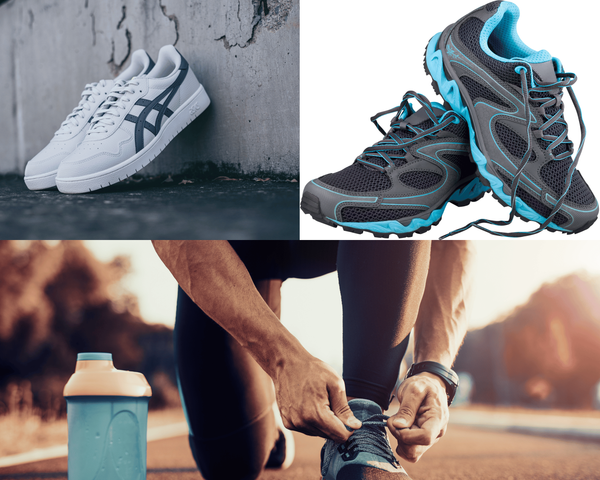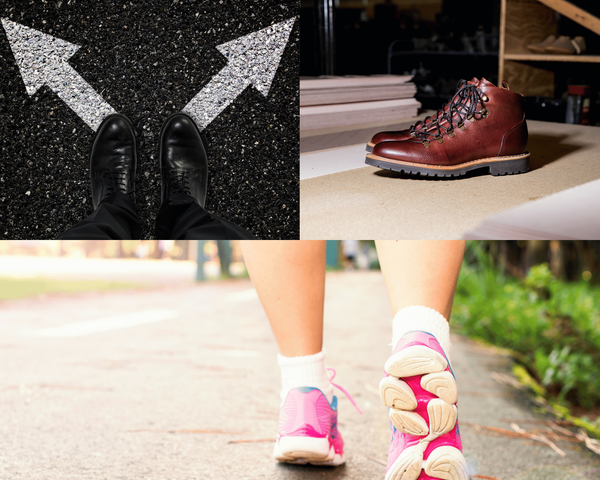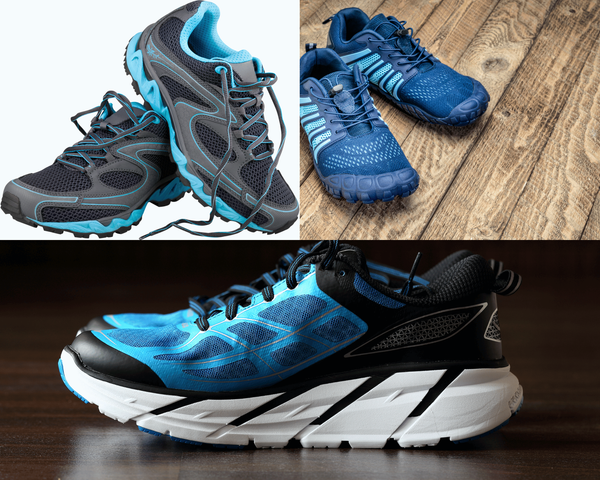Neuropathy in the feet can be a challenging condition, affecting daily activities and overall quality of life.
However, with the right lifestyle adjustments, individuals can manage their symptoms and maintain an active lifestyle. This article provides practical tips for those living with foot neuropathy.
Key Takeaways:
- Understand the importance of choosing the right footwear for neuropathy.
- Learn about daily habits that can alleviate neuropathy symptoms.
- Discover how to stay active and stylish despite neuropathy.
The Right Fit: Walking with Neuropathy Shoes
When living with neuropathy, every step can be a reminder of the condition. That's why selecting the right shoes is crucial. Walking with neuropathy shoes that provide ample cushioning and support can make a significant difference. These shoes are designed to reduce pressure on the feet, which can help minimize pain and discomfort.
It's essential to look for shoes with a wide toe box, adequate arch support, and soft, breathable materials. Some brands even offer extra depth to accommodate orthotic inserts if needed. Investing in quality neuropathy-friendly footwear can transform your walking experience.
Neuropathy-Friendly Shoe Brands: Comfort Meets Style
Not all shoes are created equal, especially when it comes to neuropathy. Neuropathy-friendly shoe brands understand the unique needs of those with foot neuropathy and design shoes that address these issues. Brands like Orthofeet, Propet, and New Balance offer a range of shoes that combine comfort with style.
These brands often feature gel padding, non-binding uppers, and ergonomic soles that help distribute weight evenly. By choosing shoes from these specialized brands, individuals with neuropathy can enjoy fashionable options without sacrificing comfort.
Daily Foot Care: A Step Towards Relief
Daily foot care is paramount for those with neuropathy. This includes regular inspection of the feet for any cuts, blisters, or signs of infection. Since neuropathy can dull the sense of touch, visual checks are necessary to catch issues early.
Moisturizing the feet can also prevent dry skin and cracks, which can become problematic for neuropathic feet. Use a gentle, fragrance-free moisturizer and avoid applying it between the toes to reduce the risk of fungal infections.
Exercise: Keeping Active with Neuropathy
Exercise is beneficial for everyone, including those with neuropathy. It can improve circulation, reduce pain, and enhance overall well-being. Low-impact activities such as swimming, cycling, or using an elliptical machine are excellent choices.
Before starting any exercise regimen, it's advisable to consult with a healthcare professional. They can recommend specific exercises that are safe and beneficial for neuropathy patients.
Nutrition: Fueling Your Body Right
Nutrition plays a vital role in managing neuropathy. A diet rich in vitamins and minerals, particularly B vitamins, can support nerve health. Incorporate a variety of fruits, vegetables, whole grains, and lean proteins into your meals.
Staying hydrated is also important, as it can help flush toxins from the body that may contribute to nerve damage. Aim to drink plenty of water throughout the day.
Stress Management: The Mind-Body Connection peripheral neuropathy
Stress can exacerbate neuropathy symptoms, making stress management techniques an essential part of living with the condition. Practices such as yoga, meditation, and deep breathing can help reduce stress levels and promote relaxation.
Regular practice of these techniques can lead to long-term benefits, including better pain management and improved quality of life.
Sleep: Restorative Rest for Neuropathic Feet foot pain
Getting quality sleep is crucial for those with neuropathy. During sleep, the body repairs itself, which can help alleviate neuropathy symptoms. Ensure your bedroom is comfortable, dark, and quiet to promote restful sleep.
If neuropathy pain interferes with your sleep, consider using a foot tent to keep the sheets off your feet or taking a warm bath before bed to relax your muscles.
Footwear at Work: Comfort Throughout the Day dress shoes
For those who work on their feet, wearing the right shoes is even more important. Look for stylish shoes for neuropathy that are also workplace appropriate. Many brands offer dress shoes with the same comfort features as their casual counterparts.
Ensure that your work shoes have non-slip soles and provide adequate cushioning to support you throughout your workday.
Social Life: Staying Connected and Active
Neuropathy shouldn't stop you from enjoying a fulfilling social life. When planning outings, consider the level of activity involved and plan accordingly. Choose venues that are accessible and don't require extensive walking.
Inform your friends and family about your condition so they can support you in finding suitable activities that everyone can enjoy.
Travel Tips: Exploring with Neuropathy wide toe box
Traveling with neuropathy requires extra planning. Pack comfortable shoes and plan for breaks during long walks or standing periods. Compression socks can also help improve circulation during flights or car rides.
Research your destination ahead of time to ensure it's neuropathy-friendly, with plenty of opportunities to sit and rest if needed.
Home Modifications: A Neuropathy-Friendly Environment
Making small changes at home can significantly impact those with neuropathy. Remove tripping hazards, install grab bars in the bathroom, walking shoes athletic shoes, supportive shoes, foot deformities, best shoes foot health, and ensure good lighting throughout your home.
Consider using ergonomic tools in the kitchen and garden to reduce strain on your feet and hands, making daily tasks more manageable.
Support Groups: Sharing the Journey best shoes for neuropathy in feet lifestyle tips
Joining a support group for people with neuropathy can provide emotional support and practical advice. Sharing experiences with others who understand can be incredibly validating and helpful.
Look for local or online support groups where you can connect with others, exchange tips, and find encouragement.
Professional Care: Partnering with Specialists
Regular check-ups with a healthcare professional who specializes in neuropathy are important. They can monitor your condition, adjust treatments, comfortable shoe, and provide specialized care.
Podiatrists, in particular, can offer advice on foot care and recommend appropriate footwear to ensure your feet are well taken care of.
Summary
Living with neuropathy in your feet requires adjustments, but with the right lifestyle tips, it's possible to lead a comfortable and active life. Choosing the right footwear, ,shock absorbing heel cushion spacious toe box, practicing daily foot care, staying active, and managing stress are all key components.
By incorporating these strategies into your daily routine, you can manage neuropathy symptoms and maintain your quality of life.
FAQ Section
Q: What are the best types of shoes for someone with neuropathy?
A: The best shoes for someone with neuropathy are those that offer ample cushioning, support, and a wide toe box. Look for neuropathy-friendly shoe brands that specialize in creating footwear designed to address the needs of those with foot neuropathy.
Q: Can exercise help with neuropathy symptoms?
A: Yes, low-impact exercises can improve circulation, reduce pain, wearing shoes, orthotic insoles, and enhance overall well-being for those with neuropathy. Always consult with a healthcare professional before starting a new exercise regimen.
Q: How important is nutrition in managing neuropathy?
A: Nutrition is very important in managing neuropathy. A balanced diet rich in vitamins, particularly B vitamins, can support nerve health and potentially reduce symptoms. Hydration is also crucial for overall health and detoxification.










